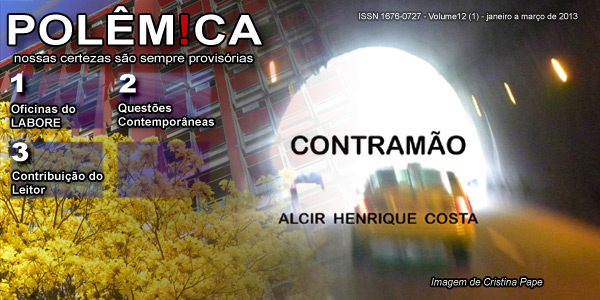FROM SHELTER TO INDEPENDENCE: WHAT THE ADULTS THAT LIVED ON SHELTER INSTITUTIONS HAVE TO SAY. BRIEF METHODOLOGICAL NOTES
DOI:
https://doi.org/10.12957/polemica.2013.5271Abstract
The aim of this paper is to present a description of the methodology used in a comprehensive study of the transitions of adults and young adults who have lived a long time in Homes for Children and Youth - foster homes for children and youth at risk, according to their prospects. It is intended to illustrate an articulation of technics and procedures used in the analysis of the challenges of empowerment of ex-institutionalized and their integration in different contexts of life (social, professional and family). In this study, we discuss the surveying of the reality of the country - Portugal, international comparisons and also the evolution of legislation from a historical perspective. This underscores the importance of adaptability of the investigator to assess understandings as vast as the relationship between the support and training provided while institutionalized and their subsequent integration into society, through descriptions auto-biographical.
Keywords: Children and Youth in Foster homes; Institutionalization; Transitions; Methodologies
Published
How to Cite
Issue
Section
License
Cabem ao autor/autora os direitos autorais dos artigos publicados na Polêm!ca, resguardando-se à revista o direito de primeira publicação. Cientes, revista e autores/as, que todos os artigos são de uso gratuito, para fins educacionais e não-comerciais, permitindo que outros remixem, adaptem e construam sobre o trabalho, desde que citada a fonte, quando da sua utilização integral ou parcial, de acordo com a licença Creative Commons CC BY-NC.
O(s) autor(es) tem/têm autorização para assumir contratos adicionais separadamente, para distribuição não-exclusiva da versão do trabalho publicada nesta revista (ex.: publicar em repositório institucional ou como capítulo de livro), com reconhecimento de autoria e publicação inicial nesta revista.
Respeitando a licença autoral adotada pela Polêm!ca, estimulamos nossos leitores a promover, refletir e escrever, a partir das nossas publicações, incluindo nas citações o link para o artigo disponível no site da Revista Polêm!ca, sempre que um artigo for citado ou replicado, e observando a grafia correta do nome da revista Polêm!ca.
Todo o conteúdo de terceiros (imagens, trechos, citações, etc.) deverá possuir referências a sua fonte original adicionadas como notas de rodapé ou referências bibliográficas com sua devida identificação.
Artigos submetidos que contiverem citações, tabelas ou imagens extraídas de outras publicações não serão aceitos, caso possuam mais conteúdo de terceiros do que conteúdo original.

Revista Polêm!ca está licenciada com uma Licença Creative Commons Atribuição-NãoComercial 4.0 Internacional.



